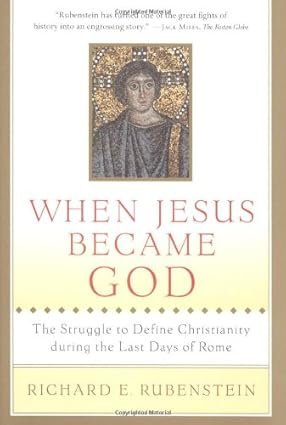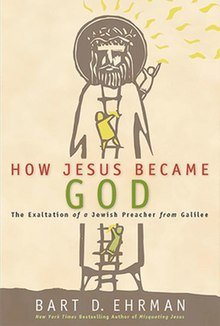Peterlag
Active Member
The life of Jesus, and the subsequent persecution of Christians during the Roman Empire, have come to define what many of us know about early Christianity. The fervent debate, civil strife, and bloody riots within the Christian community as it was forming, however, is a story that is rarely told. Richard E. Rubenstein takes readers to the streets of the Roman Empire during the fourth century, where a divisive argument over the divinity of Jesus Christ was underway. Ruled by a Christian emperor, followers of Jesus no longer feared for the survival of their monotheistic faith, but they found themselves in different camps—led by two charismatic men—on the topic of Christian theology. Arius, an Alexandrian priest and poet, preached that Jesus, though holy, is less than God, while Athanasius, a brilliant and violent bishop, saw any diminution of Jesus' godhead as the work of the devil. Between them stood Alexander, the powerful Bishop of Alexandria, in search of a solution that would keep the empire united and the Christian faith alive.

Here's another one. Two different books...
How Jesus Became God: The Exaltation of a Jewish Preacher from Galilee is a book by American New Testament scholar Bart D. Ehrman. Published on March 25, 2014, by Harper One, the book contends that the historical Jesus did not claim to be divine, nor was he worshipped as such during his life; rather, his status as God the Son in the Trinity in Christian doctrine developed in the years following his crucifixion.[1][2]


Here's another one. Two different books...
How Jesus Became God: The Exaltation of a Jewish Preacher from Galilee is a book by American New Testament scholar Bart D. Ehrman. Published on March 25, 2014, by Harper One, the book contends that the historical Jesus did not claim to be divine, nor was he worshipped as such during his life; rather, his status as God the Son in the Trinity in Christian doctrine developed in the years following his crucifixion.[1][2]
Overview
In How Jesus Became God, Ehrman argues that the historical Jesus did not claim divinity and was not worshipped as divine during his lifetime. Instead, the belief in Jesus as divine arose shortly after his crucifixion, and that the belief in Jesus as God the Son, an incarnation of God and the second divine person (or "prosopon") in the Trinity in Christian doctrine, developed in the following centuries.[1][2][3]
